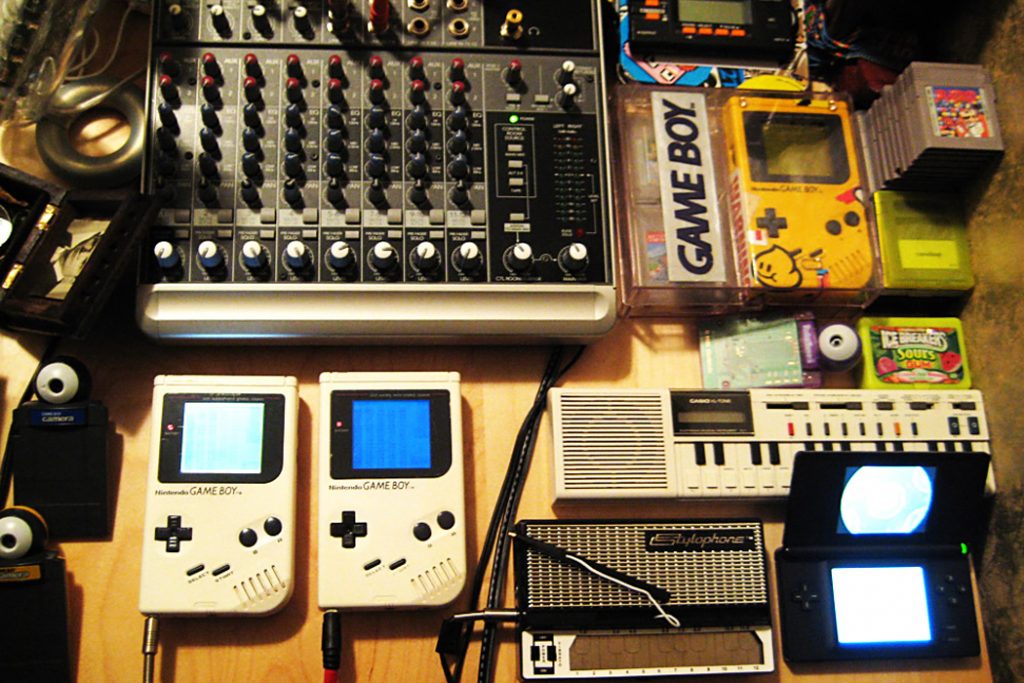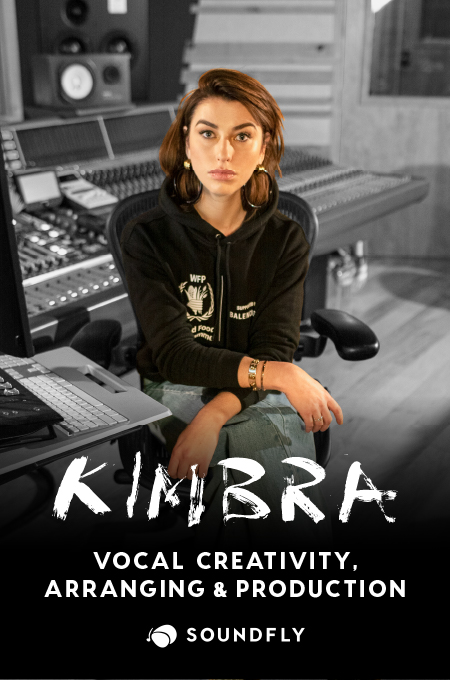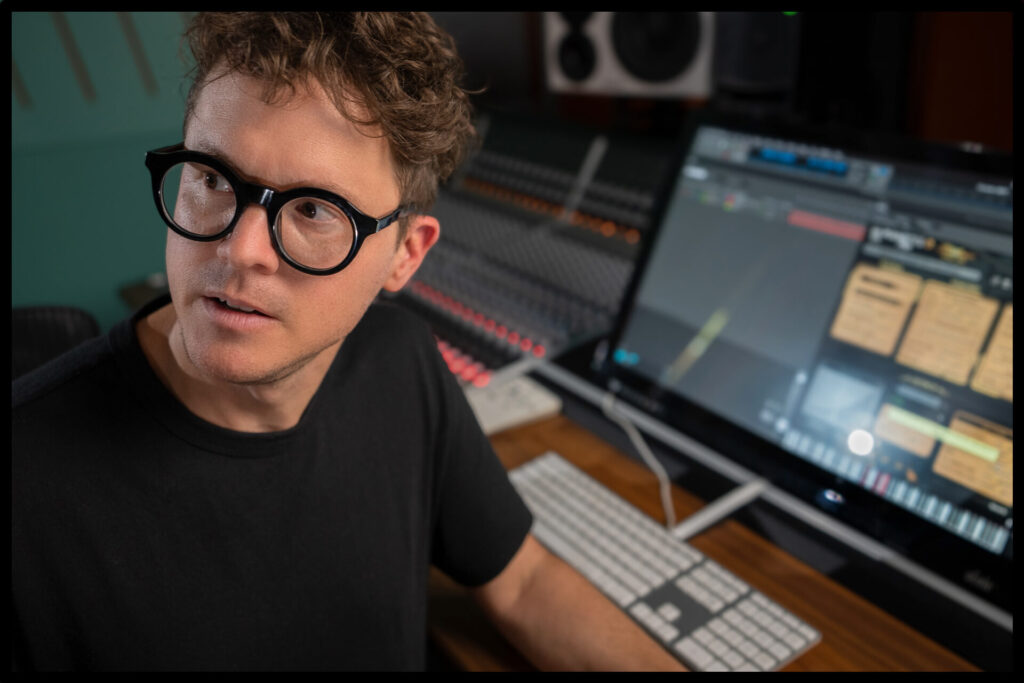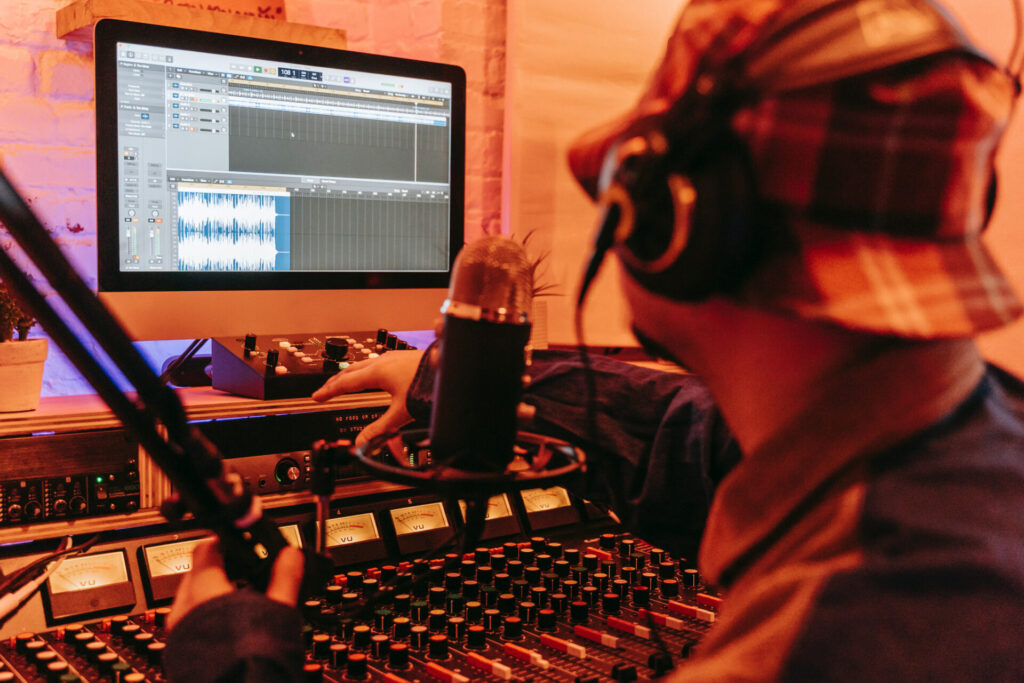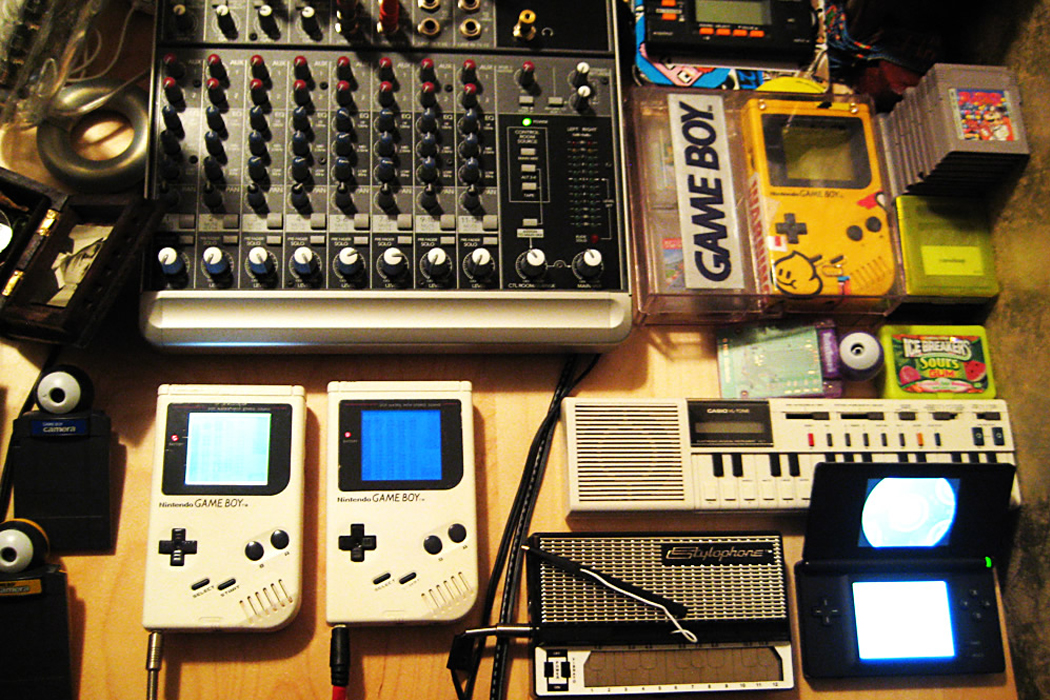
Even though video game-influenced sounds make their way into modern music and mainstream pop culture every now and then, the hardcore chiptune scene is still relatively far off the radar. But those of us whose everyday instrument rigs consist of D-pads, LCD screens, and plastic cartridges know that our heroes have been working for decades to turn chip-based music into a respected art form. Here are some of the most influential musicians responsible for this growth. (And if this list inspires you to take up chiptune music yourself, get started using Game Boy sounds with our free series, Chiptune Crash Course!)
Yellow Magic Orchestra
Although not typically or exclusively thought of as a chip-related artist, this hugely influential Japanese group was maybe the first “legit” electronic project to incorporate video game audio into “real” music. The first Yellow Magic Orchestra album, released in 1978, included sampled sounds from arcade games “Space Invaders,” “Circus,” and “Gun Fight,” set against a backdrop of catchy, bouncy synthpop.
Jeroen Tel
Jeroen Tel is a game music composer, perhaps best known for his tunes written for Commodore 64 games in the 80s and 90s that pushed the limits of the console’s versatile SID audio chip. Importantly though, Jeroen was also a member of the “demoscene,” a computer art subculture that uses technology to create impressive audio/visual masterpieces that stand on their own, separate from any specific game or program. Sound familiar? It should, because that’s basically where chiptune came from — and Jeroen truly was one of the pioneers of using gaming technology not only for soundtracks but as a standalone production tool.
Bit Shifter
New York-based artist Josh Davis (aka Bit Shifter) was among the first chip musicians to prove that Game Boy music is a force to be reckoned with, playing live shows and releasing incredible tunes throughout the early 2000s and even to this day. By infusing the console’s classic audio capabilities with seriously impressive and memorable songwriting, he created a signature sound that has influenced countless chiptuners. His first album, Life’s a Bit Shifter, was even covered in Rolling Stone magazine. But it was his 2006 EP, The Information Chase, that really caused a chiptune awakening for many of us. Melodically, his music is both catchy and complex, seemingly simple but impeccably dense — and most of all, incredibly fun.
Nullsleep
Any discussion of the early-aughts chip scene would be incomplete without mentioning Jeremiah Johnson, a.k.a. Nullsleep. In addition to contributing some of the most memorable music and live performances of the era, he also was one of the first US-based chip artists to tour the world, co-founded influential chiptune net label 8bitpeoples, and helped produce several iterations of the Blip Festival, an international chiptune showcase started in 2006. Nullsleep has continued to evolve his sound to this day, most recently experimenting with modular synths and some kind of awesome cybernetic wearable arm-instrument.
YMCK
This one is more of a personal choice, but it’s an incredibly important one. YMCK is a Japanese electronic trio who make super complicated, super gorgeous jazz-pop using the NES sound palette and perky vocals. They were the very first chiptune artist I personally ever heard back in 2004 or so, and I can remember falling in love with the concept immediately. It felt like a perfect combination of everything I had ever enjoyed in music: jazz, electronics, retro video games, virtuosity, good songwriting… You get the idea. They’re still around today, putting out new tunes and developing apps and VSTs to help other musicians sculpt their own 8-bit sound.
Anamanaguchi
Arguably the most widely known chiptune band in the world, Anamanaguchi was one of the first to build a full live band around sounds generated from a video game system. They’ve crafted a fun, accessible aesthetic based on their blend of guitars, drums, and NES audio, which has also expanded to other synth– and sample-based electronic music in recent years. Anamanaguchi has even provided music for use in commercials, theme songs, and modern video games, including the “Scott Pilgrim vs. The World” game soundtrack.
Virt
Speaking of modern video game music, perhaps the most successful and celebrated chiptune artist who’s also working on actual game audio today is Jake Kaufman, a.k.a. virt. He boasts a massive resumé of soundtrack work, all of it demonstrating his incredible knack for capturing the perfect mood for a game or level as well as his incomparable musical chops. I find myself constantly listening to virt’s tracks and wishing I could execute something as well as he did.
Chibi-Tech
It’s rare that an artist comes along and creates something that basically everyone in a scene unanimously regards as a game-changer, but in 2012, Japan’s chibi-tech did just that. An amazing producer who has been making music for and with video game technology since the mid-2000s, chibi-tech was challenged to come up with a thick, face-melting, bass-heavy growling groove using an original Nintendo Entertainment System. She knocked it out of the park with “Moe Moe Kyunstep,” a conceptual piece that basically caused every other chiptune performer to question whether the rest of our songs were even worth playing anymore. What’s more, it holds up incredibly well alongside any other modern electronic music; some might say it actually surpasses it.
Have a favorite chiptune artist who didn’t make the list? Share their music in the comments below!
